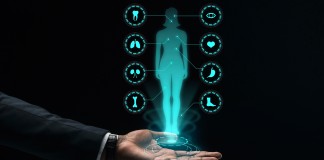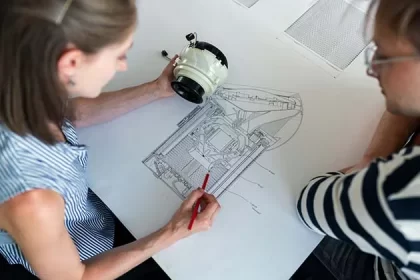Artificial Intelligence has been altering the world in ways that one can even imagine. AI has been transforming lives across different sectors and industries, particularly the pharmaceutical industry. The use of artificial intelligence has been making inroads in the healthcare industry for a good part of the last decade, creating vast waves across the sector, heavily contributing in diagnosis, drug discovery, development, clinical trials, and treatments.
The emergence of artificial intelligence in healthcare applications has been groundbreaking with innovations reshaping the way of diagnosis processes. The recent advances in AI are poised to identify and assist in drug discovery through significant research and models. It takes years and several clinical trials to discover a new medicine to treat a disease successfully. Artificial Intelligence converges technological innovation, drug development and biology to accelerate and improve the process on a scale and at a pace that human power would not have imagined.
Healthcare organizations are heavily investing in AI to improve patient care and outcomes. The most widespread application of AI in healthcare is precision medicine. Artificial Intelligence techniques have a promising impact in precision medicine application. Harnessing the power of AI, doctors analyze vast amounts of clinical documentation including genetic data of patients to identify potential disease risk factors and develop customized treatment plans and personalized medicines tailored to patient’s specific needs.
The application of AI is enabling rapid and efficient design of novel compounds with specific
properties and activities. It has the potential to identify and predict the toxicity of drug compounds, enabling the development of safer medications for patients.
The potential implications of AI in healthcare are broad and far-reaching. This technology is
drastically improving healthcare research and outcomes, by providing patients with accurate diagnosis and precision treatments. AI-based knowledge is capable of recognizing diseases in their early stage. Leveraging new AI tools, it has become possible to detect early cancer on imaging. Advances in AI delivers a breakthrough in breast cancer screening by analyses images to detect breast masses. Diagnosing cancer at an early stage improves outcomes by increasing the chances of recovery.
With further advancement, virtual health assistant comes into action. An AI-powered medical assistant offers personalized experience to patients by detecting illness based on symptoms described by users, suggesting medical advice, monitoring health status, scheduling doctor’s appointment, and much more. Combining cognitive computing and augmented reality, AI stimulates and solves healthcare problems in real time, operating 24*7.
Artificial Intelligence offers a plethora of opportunity in healthcare, not only in diagnosis, treatment, and patient care, but also to make better and quicker decisions by applying research and techniques. Application of AI contributes to efficiently run the entire healthcare ecosystem by leveraging real-time data, automation, and development of chatbots. By using sophisticated deep learning frameworks and large-scale data analysis, AI is set to transform the healthcare system to provide improved patient care and deal with the growing unmet need for clinical care.










